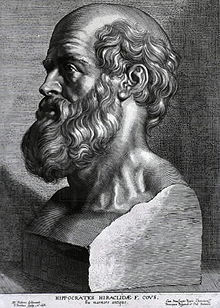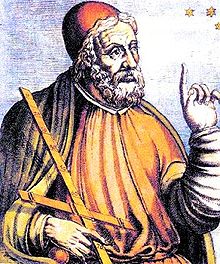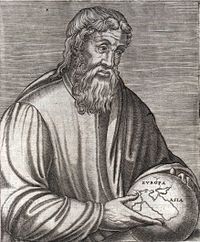
W.
D. Pattison's Four Traditions
In
1964, W.D. Pattison, a professor at the University of Chicago, wanted to counter
the idea that geography was an undisciplined science by saying that geographers
had exhibited broad enough consistency such that there were four distinctive,
but affiliated traditions:

Intellectual
legacy:
Aristotle (384-322 B.C.); Greek philosopher who looked at natural processes,
Earth is spherical, matter falls together toward a common center.
Modern
geographer:
Immanuel Kant (1724-1804);
German
1) All knowledge can be classified logically or physically
2) Descriptions according to time
comprise history, descriptions according to place
compromise geography
3) History studies phenomena that follow one another chronologically,
whereas geography studies phenomena that are located beside one another.

Intellectual
legacy:
Hippocrates; a Greek Physician of 5th
century B.C. who wrote that places affect the health and
character of man.
Modern
geographer(s):
Alexander von Humboldt
(1769-1859) and Carl Ritter (1779-1859); German
1) Move beyond describing earth’s surface to explaining why certain phenomena are present or absent.
2) Origin of “where” and “why” approach
3) Environmental determinism – how the physical environment causes social
development

Intellectual
legacy:
Claudius Ptolemy (A.D. 100?-170?); a Greek, who wrote 8-volume Geographia
in the second century A.D. containing numerous maps (also father of geometry).
Modern
geographer:
Alfred Wegener; climatologist
1) Studied spatial arrangement of landmasses, used geographical and
geological evidence
2) Continental drift – landmasses were once part of supercontinent (plate
tectonics)

Intellectual legacy:
Strabo (63? B.C.-A.D.
24?); Roman investigator, who wrote a report called Geography,
a massive production for the statesmen intended to
sum up and regularize knowledge of location and place, their character, and their differentiation.
Modern geographer:
Carl Sauer (1889-1975); American
1) The work of human geography is to discern the relationships among social and physical phenomena
2) Everything in the landscape is interrelated.